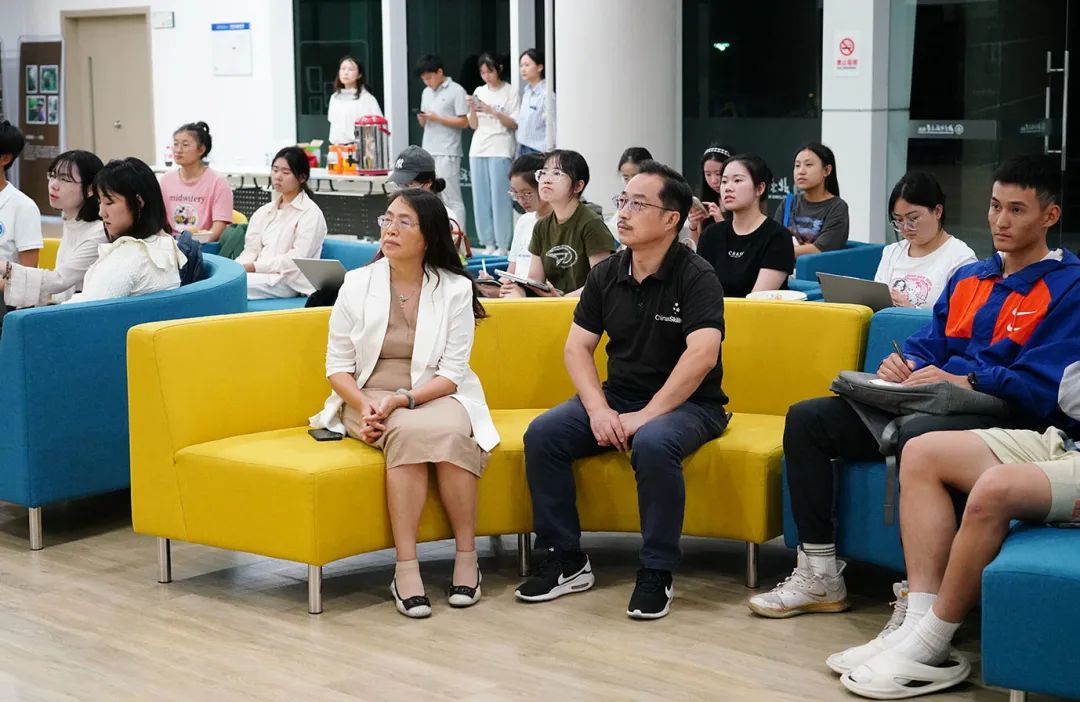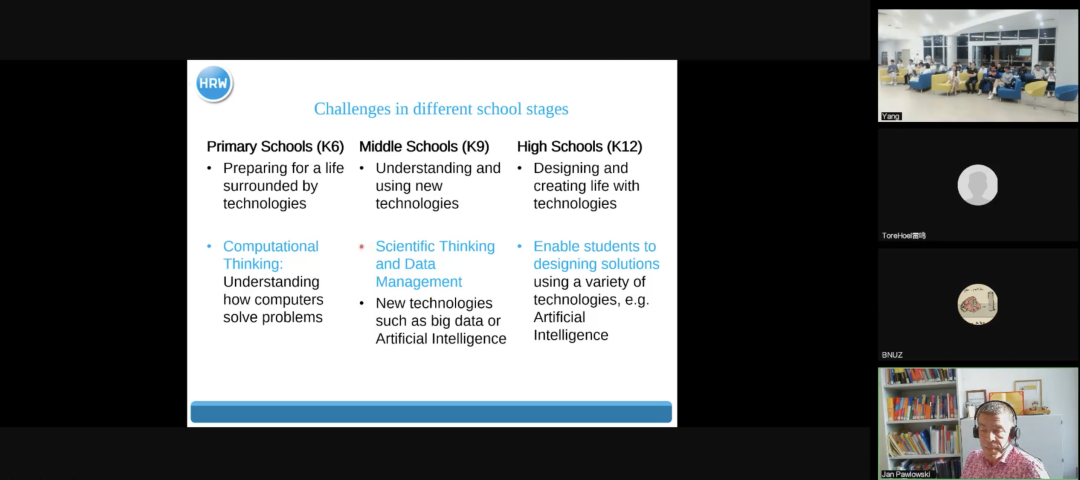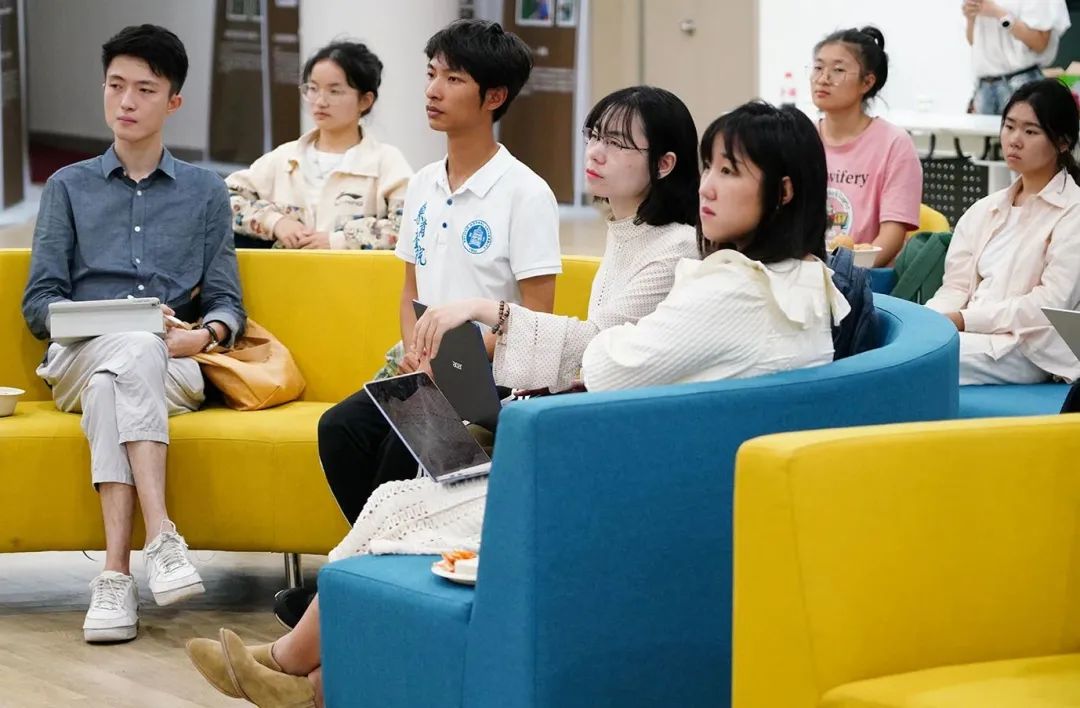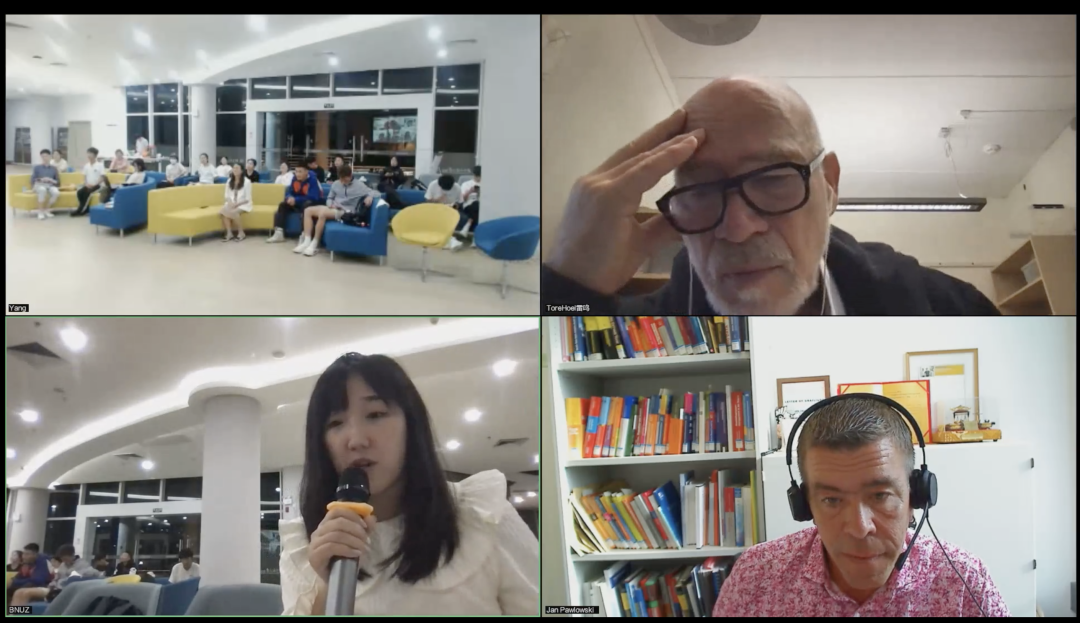On the evening of October 31st, the Future Education International Salon, hosted by the Future Education Institute, was held in Room A101 of the LiJiao Building. Jan Pawlowski, a professor at the University of Applied Sciences Ruhr West in Germany, gave a talk titled "Digital Transformation: The Impact of Necessary Skills and Curriculum Changes on the Next Generation" and discussed the new requirements for labor training and school education development brought about by the development of the digital society. The salon was co-hosted by Professor Yuan Li and Dr. Tore Hoel, a specially-appointed foreign expert. Vice Dean Sun Bo of the Future Education Institute, teachers from the Future Education Institute, and students from different majors also participated in the salon.

The lecture focused on how schools should cultivate students to have the ability to adapt to future work and development. Professor Pawlowski first talked about how artificial intelligence and big data have had many impacts on our lives, such as providing personalized customized services for customers based on big data in business practices. He then referred to the development trends of automation, artificial intelligence, technology, and data to summarize the challenges that digital transformation will face in the future society: (1) all industries and practitioners need to learn new digital skills to adapt to development; (2) teachers and students need to improve their digital literacy; and (3) schools and educational institutions need to establish sound strategies and mechanisms. He emphasized the European Union's student computational thinking project, which cultivates students' computer thinking ability and skills in stages from elementary to high school to meet the challenges of digital transformation. He shared the Computational Thinking and Acting (COTA) capability framework designed according to the different knowledge and skills that students need to master at different ages, as well as resources and manuals available for students and teachers to use. He also demonstrated a mobile application designed to help students learn computational thinking and simple programming.

Finally, Professor Pawlowski introduced the Fabcitizen capability framework and used data processing as an example to illustrate the importance of learning data science and data management, as well as the scope of children's data rights protection.
He proposed that digital transformation will change the current state of education and also change the direction of society's demand for student skills/abilities. Therefore, we need to rethink the essential abilities and curriculum settings for students. Although schools have successfully implemented some methods to help students adapt to new demands, there is still a long way to go in terms of curriculum transformation, and we need to collaborate to design future courses together. Professor Tore Hoel commented on Professor Pawlowski's report and suggested that perhaps teachers in Chinese schools face similar challenges and are also conducting similar research, so they can learn from each other.
In the Q&A session, Ms. Pingping Zhao from the Future Education Institute asked whether Professor Pawlowski used some theoretical models to classify some influencing factors regarding the different challenges faced by children of different ages in training computational thinking in his presentation, and what are the common development characteristics of the mobile applications he mentioned. Professor Pawlowski replied that there is no long-term research on the impact of computational thinking on children's career development, but there are some studies on the impact on children's academic performance. As this is a practical research, there is no predictive theory, so we can adjust the conclusion of the analysis framework for different levels and units. Regarding the second question raised by Ms. Zhao, Professor Pawlowski said that the common points come from modular programming languages and graphical programming interfaces. Regarding the collection and analysis of data on training computational thinking for children of different ages, Professor Pawlowski mentioned that his relevant research on German students' computational thinking is based on the German education system, which includes university education and receiving professional vocational training. For example, for the new generation of young people engaged in the construction industry, we need to understand their needs for computational thinking.

Ms. Siqi Li, a young teacher from the Future Education Institute, asked Professor Pawlowski about the role of teachers in his previous research. She also asked whether Professor Pawlowski made assumptions based on his own experience when researching students' computational thinking abilities. Professor Pawlowski replied that teachers were the core research subjects in his survey, and their digital teaching literacy and teaching level need to be improved. Some students even learn programming faster than their teachers. In Germany, relevant departments have started to provide targeted training for teachers, but large-scale teacher training is still difficult in the short term. Teachers need to actively change their teaching methods to adapt to the new challenges brought by digital transformation. Professor Pawlowski continued to talk about how he made some assumptions based on previous research results in his study on the development of adolescent competitiveness. Dr. Tore Hoel added that teachers should also pay full attention to the importance of open educational resources, and actively demand suitable educational resources for successful transformation.

The event ended successfully amidst the enthusiastic applause of the teachers and students.



 Last Page
Last Page

 Phone:0756-3621121
Phone:0756-3621121
 Email:ccie@bnu.edu.cn
Email:ccie@bnu.edu.cn